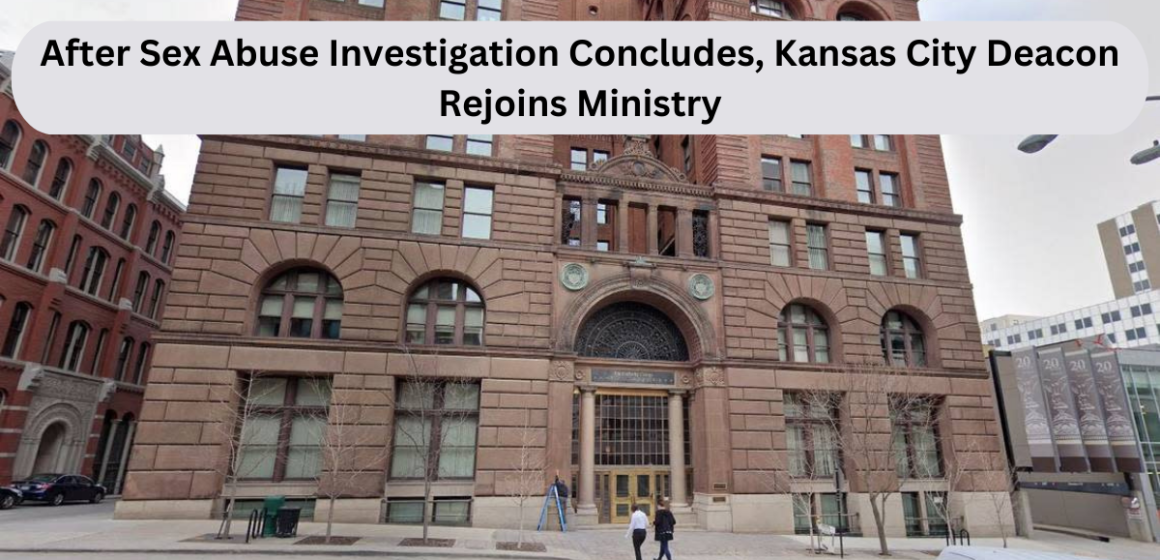Kansas City, Mo. — The Diocese of Kansas City-St. Joseph has cleared Deacon Ralph Wehner of allegations related to child sex crimes and lifted the precautionary suspension that had kept him from active ministry. The investigation into Wehner’s conduct, which had been ongoing for several months, was officially closed after the diocese’s independent ombudsman found no supporting evidence to corroborate the accusation.
The matter first came to light on August 1, when the diocese learned of an accusation alleging inappropriate sexual contact by Wehner with a minor between 1982 and 1984 in St. Louis. Following the announcement of the claim, Bishop James Johnston quickly launched a preliminary canonical investigation. As a precautionary measure, Wehner was temporarily suspended from his duties within the church.
Investigation and Findings
According to a statement from the Diocese of Kansas City-St. Joseph, the diocese’s independent ombudsman, who was tasked with reviewing the matter, found no further information to back up the accusation. The diocese also noted that the lawsuit tied to the accusation was withdrawn, further weakening the case against Wehner. Based on these findings, the diocese made the decision to lift the suspension and allow Wehner to return to his ministry.
A spokesman for the diocese expressed that the decision to return Wehner to his duties was made after thorough consideration and a careful review of the available information. “Our primary concern is the safety and well-being of all children and individuals within our faith community,” the spokesperson said. “We have followed the church’s protocols to ensure a just and fair process.”
Criticism from Survivors Group
The decision, however, has drawn strong criticism from some quarters, particularly from the Survivors Network of those Abused by Priests (SNAP), an advocacy group for survivors of clergy abuse. In a statement released following the diocese’s announcement, SNAP expressed concern over the investigation’s handling and the speed with which Wehner was reinstated.
“We are afraid that the Bishop is gambling with the safety of children in the Diocese,” SNAP stated. “It is irresponsible to put an accused back on the job after a brief suspension and what appears to us to be a cursory investigation.”
SNAP has long advocated for more transparent and thorough investigations into allegations of abuse within the Catholic Church, and the group raised questions about whether the diocese took sufficient steps to fully vet the accusations before allowing Wehner’s return.
Moving Forward
Deacon Ralph Wehner, who had been serving in the Kansas City-St. Joseph Diocese for several years, will now resume his ministry, which includes religious services, pastoral care, and community outreach. He has maintained his innocence throughout the investigation and is expected to continue his work within the church.
While the diocese has ended the investigation, the decision to reinstate Wehner may continue to be a point of contention for some members of the community. Many are left questioning the balance between church policies designed to protect the faithful and the need for a fair and rigorous process when allegations arise.
As the Diocese of Kansas City-St. Joseph moves forward, it will likely face continued scrutiny from both survivors’ groups and members of the local faith community. Church officials have emphasized their commitment to maintaining a safe environment for all, but the process by which these allegations are handled will remain a focal point for ongoing dialogue within the diocese and beyond.
In response to the controversy, the diocese has urged individuals with concerns or information regarding any potential misconduct to come forward and report it to the appropriate authorities. “Our doors are always open to those who need assistance or wish to raise concerns,” the diocese spokesperson said.
The Future of Church Investigations
As this case concludes, the diocese and other religious institutions across the country are grappling with how best to handle accusations of misconduct and allegations of abuse. While many dioceses have strengthened their policies and protocols for addressing such claims, the question of how to balance fairness, transparency, and the protection of vulnerable individuals remains a complex and emotionally charged issue.
As investigations continue and new cases emerge, religious organizations will likely face increasing pressure to ensure that their processes are not only thorough but also perceived as just and accountable to the communities they serve.



Leave a Reply